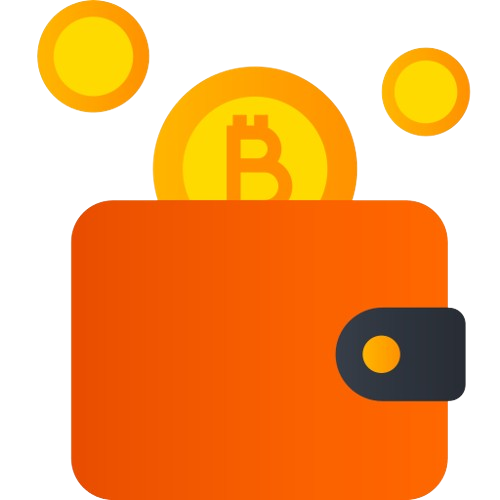
Since its launch in 2009, Bitcoin has been shrouded in misconceptions and myth-driven narratives. The anonymity and technical complexity of crypto have led to various fallacies repeated by uninformed critics. As mainstream adoption grows, now presents an opportune time to debunk the most stubborn Bitcoin myths and establish a fact-based framework. Proper education enables sound investment decisions free from fiction-based fears. Let’s examine the top Bitcoin falsehoods and replace them with truth.
Bitcoin Has No Intrinsic Value
Detractors often claim Bitcoin lacks inherent value, dismissing it as merely speculative or a Ponzi scheme. In reality, Bitcoin introduces demonstrable utility and economic properties that underpin value. As a decentralized digital money, Bitcoin enables permissionless global transactions. As a scarce digital asset with a fixed supply, Bitcoin offers a store of value immune to inflation. The growing network of users, miners, and infrastructure provides the basis for intrinsic value.
Bitcoin Is Mainly Used By Criminals
Because cryptocurrency initially gained notoriety for illicit uses, a myth arose that Bitcoin is only used by bad actors. In truth, the vast majority of Bitcoin wallet activity today is legitimate. Further, every monetary system including physical cash and banks has criminal activity. As Bitcoin monitoring tools improve, unlawful usage declines as legal commerce grows. Bitcoin itself is neutral – the same technology that aids criminals also facilitates legal activities.
Bitcoin Is Too Volatile to Invest In

While Bitcoin has experienced notable volatility historically, its gyrations are flattening over time as adoption grows. All new asset classes like internet stocks exhibit huge swings initially. But as markets mature, volatility declines.
Bitcoin is progressing down the same path as infrastructure improves and more stable investors get involved. Though still volatile, Bitcoin’s risk-reward profile has become more favorable over time.
Bitcoin is Bad for the Environment
Early criticisms focused on Bitcoin’s energy-intensive proof-of-work mining. However, data shows much activity utilizes renewable energy, especially stranded or excess power. Bitcoin increasingly incentivizes more sustainable energy production. It promises to accelerate green initiatives through appropriate incentives. Additionally, layer-2 solutions and proof-of-stake consensus models dramatically cut crypto energy needs.
Bitcoin Has No Real-World Use Cases
Dismissing Bitcoin as useless ignores real examples of its growing utility for cross-border payments, faster settlements, micropayments, eliminating middlemen fees, empowering the unbanked, and providing censorship-resistant transactions. Corporations are already adopting Bitcoin as a cross-border payments infrastructure and a treasury asset. Bitcoin enables new functionality that enriches lives and global commerce.
There Will Only Ever Be 21 Million Bitcoin
While designed to have a limited supply of 21 million coins, Bitcoin is infinitely divisible as a digital asset. The smallest unit is a satoshi, of which there are 100 million in each Bitcoin. This flexibility makes Bitcoin suitable as a scalable medium of exchange even if the supply cap is reached. Only the total satoshis are limited, not Bitcoin’s ability to adapt. Think of Bitcoin as a giant jigsaw puzzle.
Bitcoin Has No Backup if Lost or Stolen
Unlike traditional bank accounts and credit cards, Bitcoin does lack a trusted third party to reverse payments or restore lost funds. But this speaks to the asset’s fundamental nature as decentralized digital cash. Properly securing assets in cold storage minimizes theft risk. For consumer protection, insured Bitcoin debit cards provide a sound workaround. Bitcoin forces personal responsibility, though better consumer solutions keep emerging.
Bitcoin Could Be Banished by Governments

As Bitcoin grows, many assume governments will restrict or ban it if seen as a threat to state currencies or financial control. But technology makes this increasingly impractical. Bitcoin operates as censorship-resistant decentralized software.
Same as governments could not shut down BitTorrent or encryption, stopping Bitcoin becomes very difficult without turning off the internet itself. Bitcoin stays resilient by nature.
Bitcoin Has No Managerial Accountability
Unlike corporations with known leadership, Bitcoin relies on collective consensus between global miners and node operators. But rather than a weakness, decentralization is a strength. Removing centralized control points enhances integrity. Open-source code invites public scrutiny. Signaling mechanisms and transparent blockchain data provide accountability. Arguably Bitcoin governance has evolved more ethically than private equity boards.
Bitcoin is Too Complex for Mainstream Adoption
Bitcoin appears technical at first glance because most users initially get education from low-level sources. But step back, and Bitcoin philosophically is quite simple – scarce, durable, portable, divisible digital money and store of value. Wrapped in easy-to-use apps, wallets, and debit cards, mainstream users do not need complex tech fluency any more than they understand email protocols. Usability constantly improves through intuitive design.
Conclusion
On closer analysis, many of the persistent myths around Bitcoin stem from misunderstandings of its technical underpinnings or ideological biases. But Bitcoin’s longevity and ongoing adoption speak for themselves. Users need not master every cryptographic detail to grasp Bitcoin’s practical utility and economic advantages. Separating fact from fiction requires maintaining an open yet skeptical mind. As public awareness grows, expect Bitcoin falsehoods to fade, allowing its true value to speak loudly.